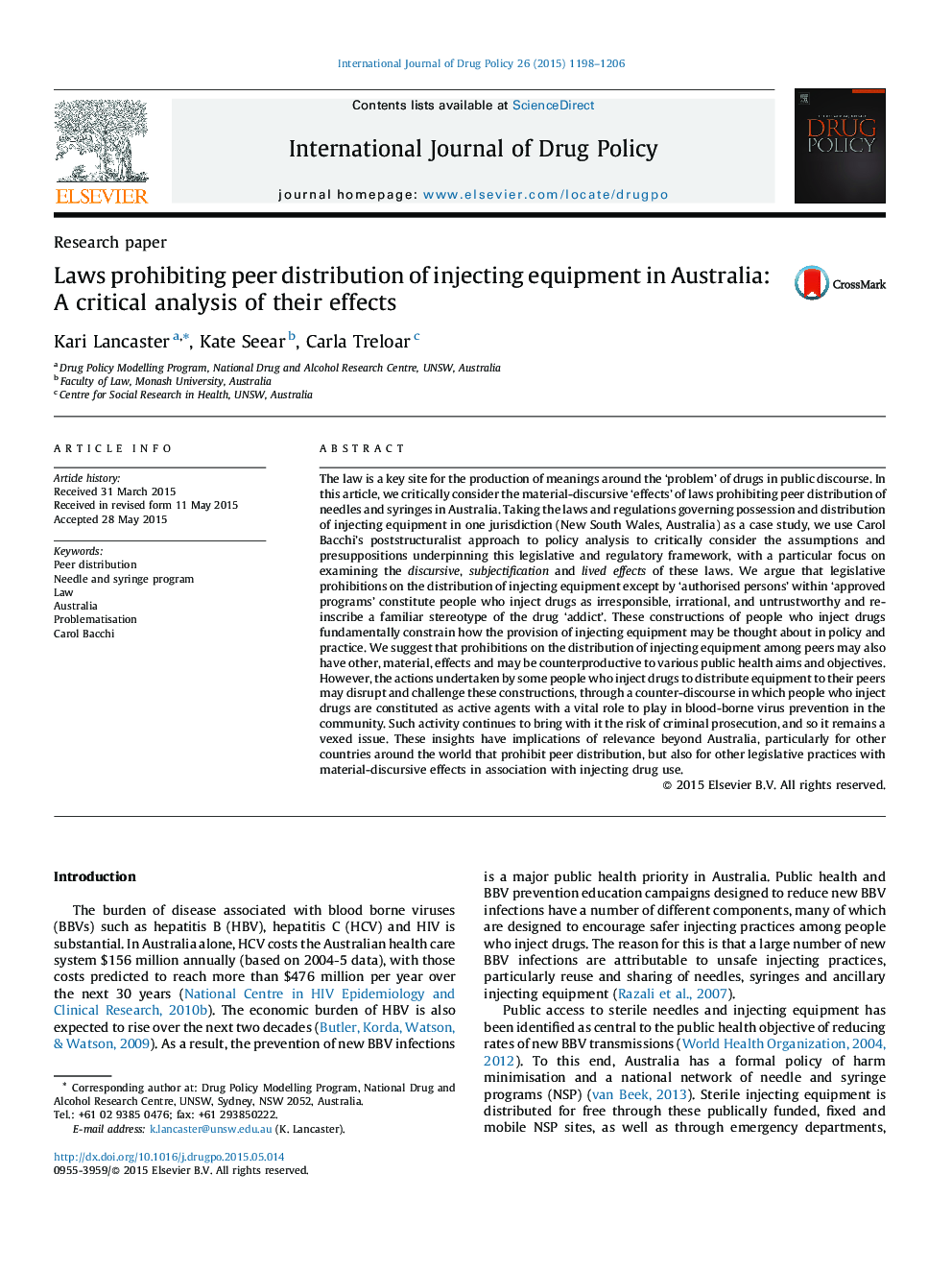| Article ID | Journal | Published Year | Pages | File Type |
|---|---|---|---|---|
| 1075052 | International Journal of Drug Policy | 2015 | 9 Pages |
•We examine laws prohibiting peer distribution of needles and syringes in Australia.•We focus on the discursive, subjectification and lived effects of these laws.•These laws constitute people who inject drugs as irresponsible and untrustworthy.•Prohibitions on peer distribution may be counterproductive to public health aims.•Peer distribution may produce promising, alternative material-discursive effects.
The law is a key site for the production of meanings around the ‘problem’ of drugs in public discourse. In this article, we critically consider the material-discursive ‘effects’ of laws prohibiting peer distribution of needles and syringes in Australia. Taking the laws and regulations governing possession and distribution of injecting equipment in one jurisdiction (New South Wales, Australia) as a case study, we use Carol Bacchi's poststructuralist approach to policy analysis to critically consider the assumptions and presuppositions underpinning this legislative and regulatory framework, with a particular focus on examining the discursive, subjectification and lived effects of these laws. We argue that legislative prohibitions on the distribution of injecting equipment except by ‘authorised persons’ within ‘approved programs’ constitute people who inject drugs as irresponsible, irrational, and untrustworthy and re-inscribe a familiar stereotype of the drug ‘addict’. These constructions of people who inject drugs fundamentally constrain how the provision of injecting equipment may be thought about in policy and practice. We suggest that prohibitions on the distribution of injecting equipment among peers may also have other, material, effects and may be counterproductive to various public health aims and objectives. However, the actions undertaken by some people who inject drugs to distribute equipment to their peers may disrupt and challenge these constructions, through a counter-discourse in which people who inject drugs are constituted as active agents with a vital role to play in blood-borne virus prevention in the community. Such activity continues to bring with it the risk of criminal prosecution, and so it remains a vexed issue. These insights have implications of relevance beyond Australia, particularly for other countries around the world that prohibit peer distribution, but also for other legislative practices with material-discursive effects in association with injecting drug use.
